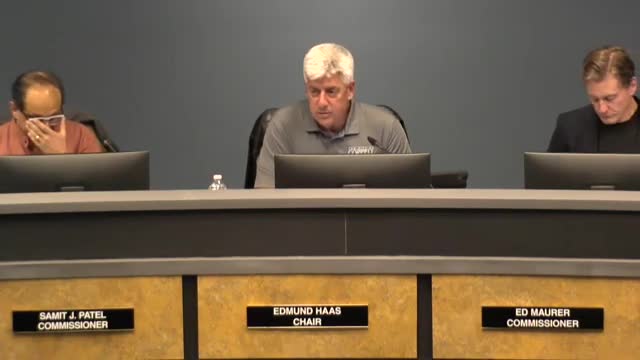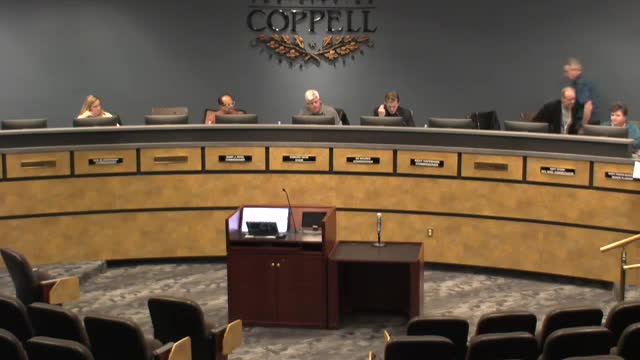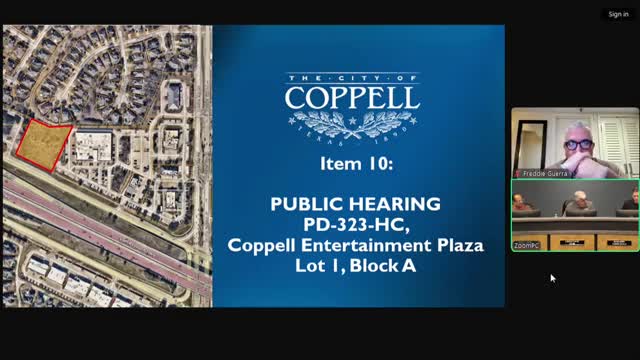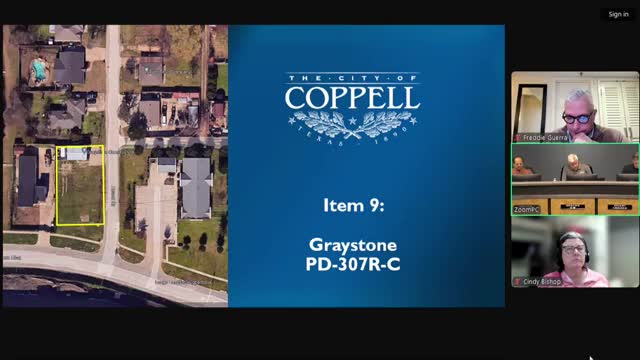Article not found
This article is no longer available. But don't worry—we've gathered other articles that discuss the same topic.

Commission elects officers, approves minutes and continues Carrollton‑Farmers Branch ISD Ag Barn items

Commission recommends text changes to zoning code: new definitions and more flexible parking rules for warehouses and retail

Commission approves Coppell Entertainment Plaza (indoor pickleball) with conditions, adds gated access option for HOA

